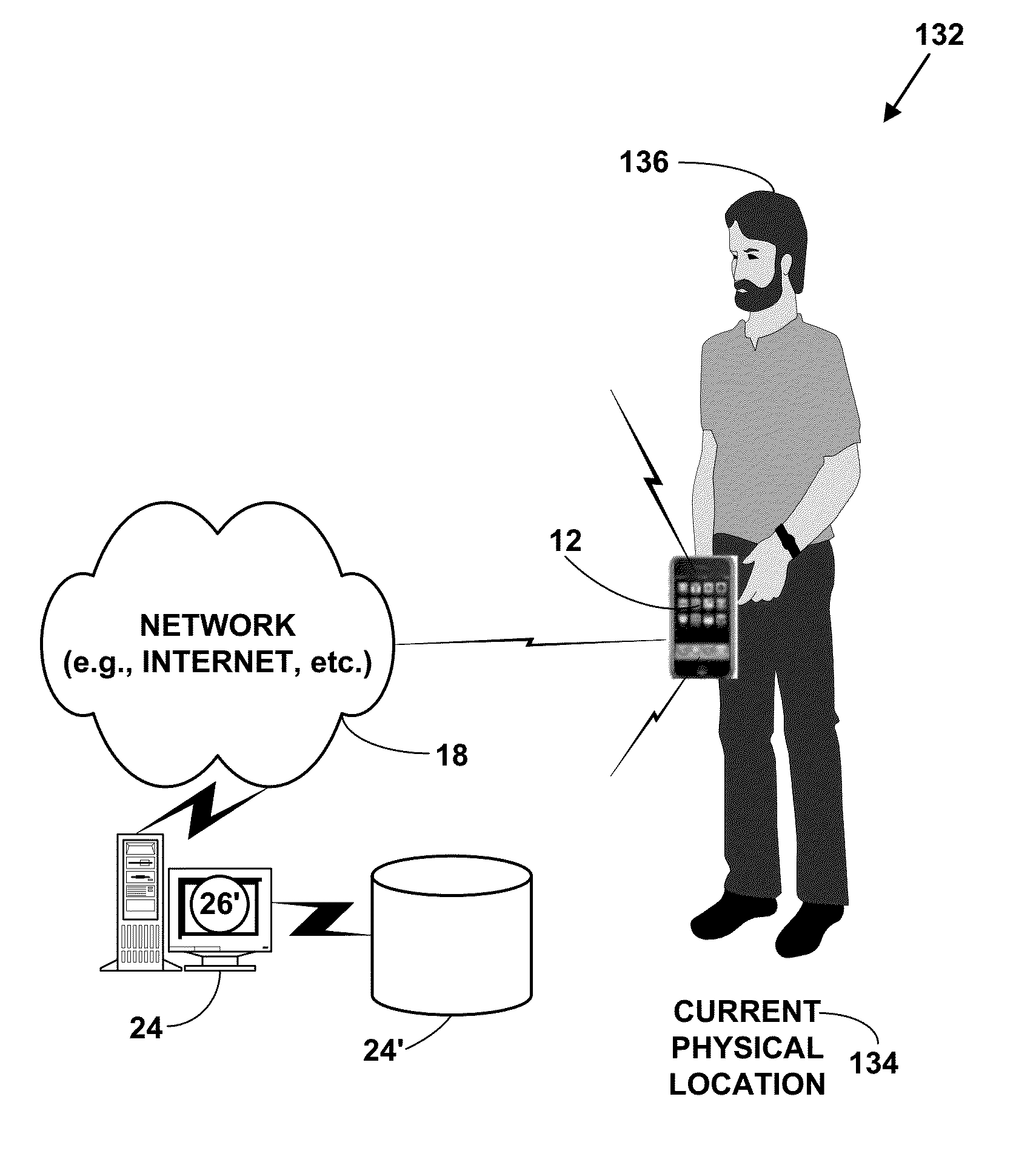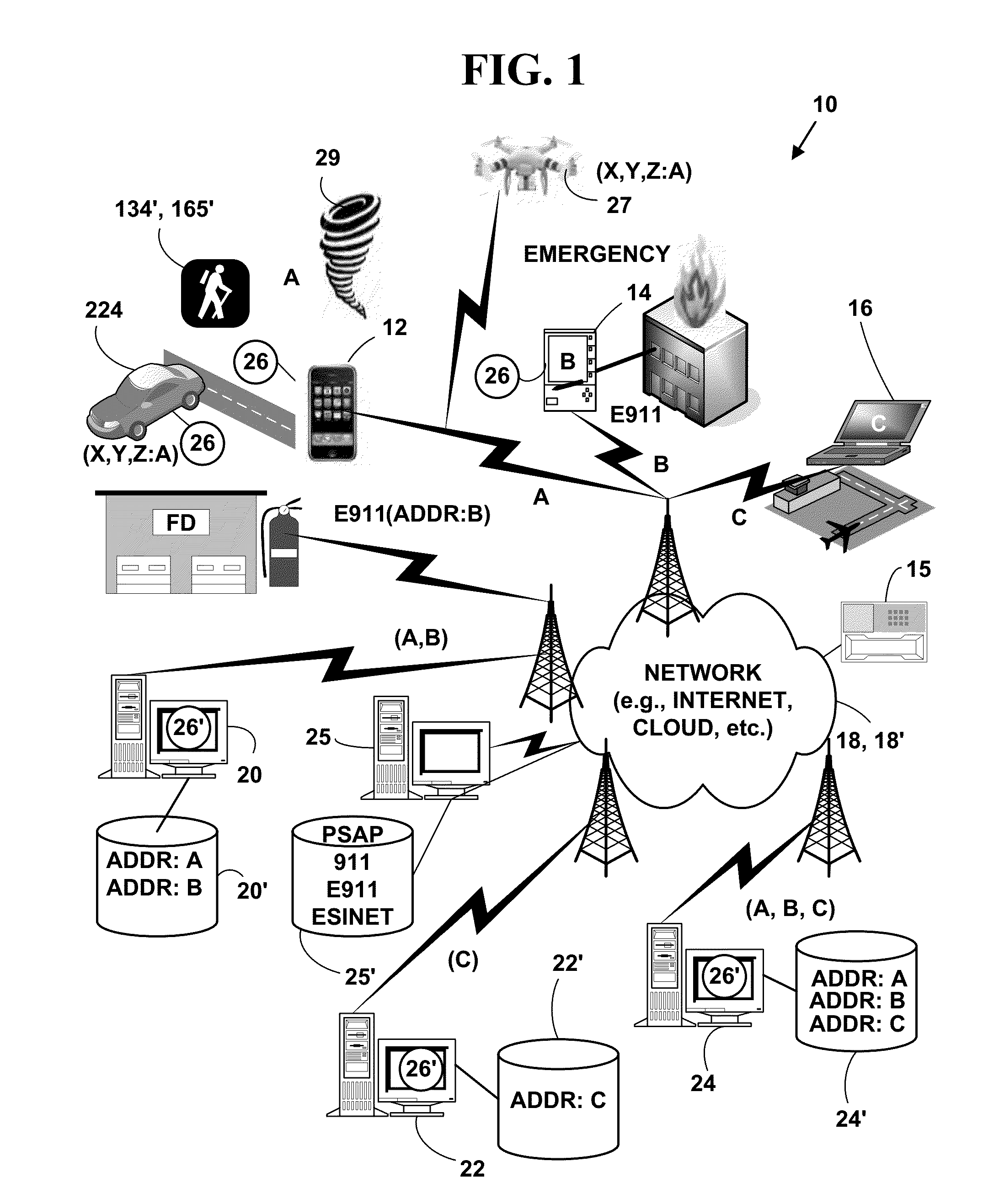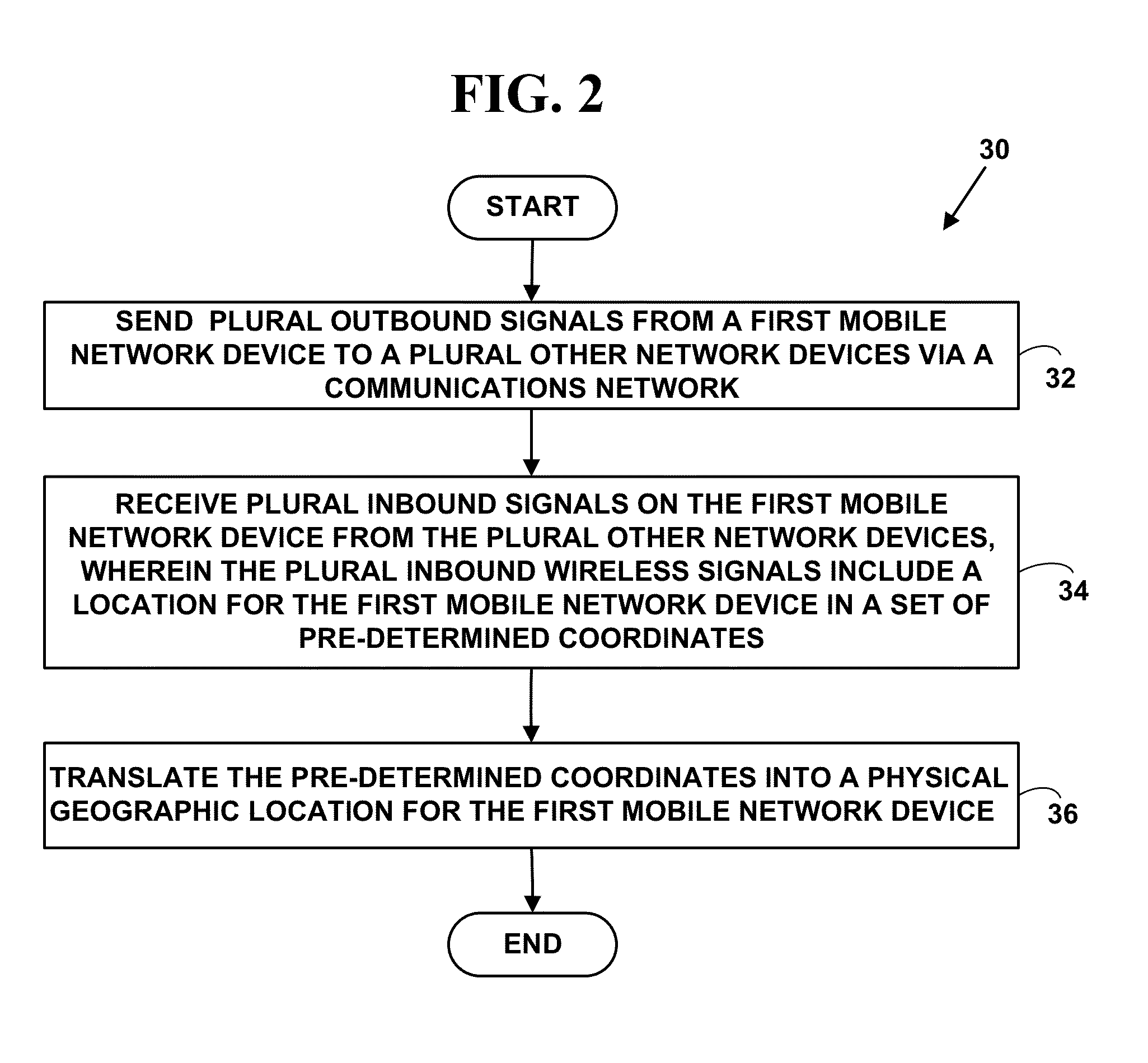Method and system for an emergency location information service (e-lis) from automated vehicles
a technology of location information and automated vehicles, applied in the direction of wireless commuication services, machine-to-machine/machine-type communication services, instruments, etc., can solve the problems of inability to meet the requirements accuracy, prior art methods of accomplishing such locations, etc., to achieve the effect of rapid location determination, automation, and accuracy, and navigation using conventional maps and visual observation or dead reckoning is not readily automated
- Summary
- Abstract
- Description
- Claims
- Application Information
AI Technical Summary
Benefits of technology
Problems solved by technology
Method used
Image
Examples
examplery electronic emergency
Information Message Processing System
[0053]FIG. 1 is a block diagram illustrating an exemplary communications system 10. The exemplary communications system 10 includes, but is not limited to, one or more target network devices 12, 14, 16 (only three of which are illustrated) each with one or more processors. The target network devices 12, 14, 16 include, but are not limited to, wearable devices (e.g., glasses, watches, wrist bands, clothing, jewelry, etc.), mobile phones, non-mobile phones, smart phones, tablet computers, portable gaming platforms (GAMEBOY and DSI by Nintendo, PSP by Sony, etc.), non-portable gaming platforms (e.g., XBOX by Microsoft, Wii by Nintendo, PLAY STATION, by Sony, etc.) non-mobile computers, wireless devices, wired devices, game devices, laptop computers, personal information devices, personal digital / data assistants (PDA), hand-held devices, network appliances, Internet appliances, cable television set-top boxes, Internet television set-top boxes, satell...
PUM
 Login to View More
Login to View More Abstract
Description
Claims
Application Information
 Login to View More
Login to View More - R&D
- Intellectual Property
- Life Sciences
- Materials
- Tech Scout
- Unparalleled Data Quality
- Higher Quality Content
- 60% Fewer Hallucinations
Browse by: Latest US Patents, China's latest patents, Technical Efficacy Thesaurus, Application Domain, Technology Topic, Popular Technical Reports.
© 2025 PatSnap. All rights reserved.Legal|Privacy policy|Modern Slavery Act Transparency Statement|Sitemap|About US| Contact US: help@patsnap.com



